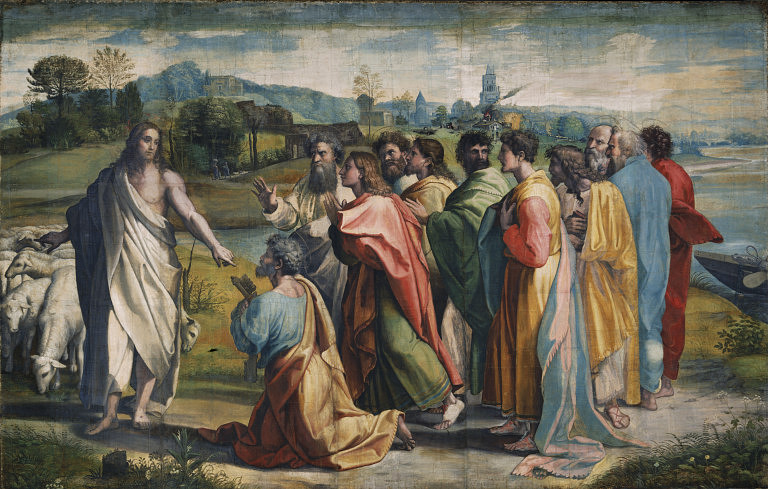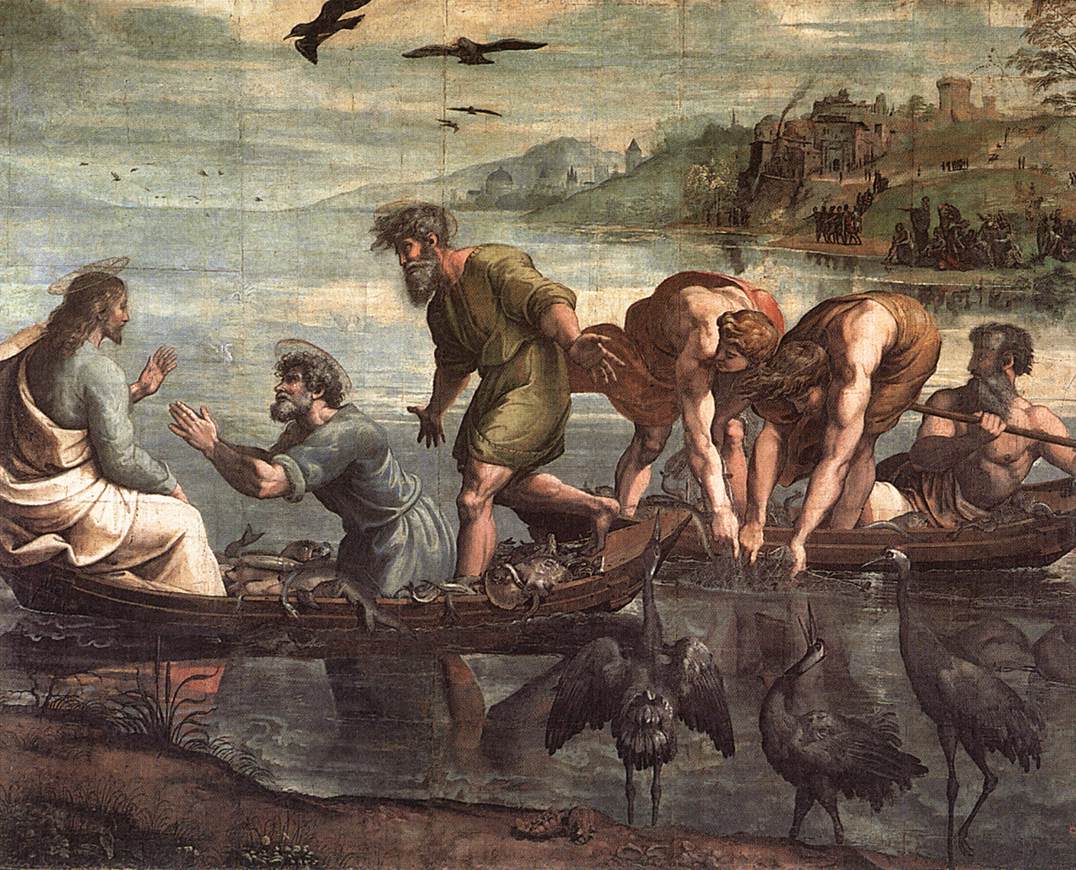ファントム・ストライク(思い込みの攻撃。イラク戦争でアルカイダなどを混乱させるために用いられた攻撃のこと)。
一部の人々はそう呼ぶことがあるが、言い得て妙だ。それは匿名の信徒から浴びせられる言葉や、未確認の思い込みから来る遠慮のない視線のことだ。
数年前、ファントム・ストライクが雨のように降り注ぐ時期が数カ月続いた。それは教会の変化に対して信徒が反応したもので、教会の礼拝形式や運営方法についての変化が原因だった。
[toggle]Phantom strikes. That’s what some people call them, and appropriately so. They are the words from anonymous congregants, the furtive glances and side-eyes fueled by unchecked assumptions. There was a stretch of months a few years ago where these phantom strikes seemed to rain down. People were reacting to changes at our church—some related to worship practices, a few related to leadership. [/toggle]電話とメールが大量に押し寄せてきた。私たちはできるだけ多くの人に会い、話を聞き、説明をし、話し合い、そして祈った。しかし、ファントム・ストライクが止むことはなかった。誰が何を言っているのか、なぜそのような話を流布させるのか分からず、事態は困難を極めた。
[toggle]Phone calls and emails poured in. We met with as many people as we could, listened and explained, talked and prayed. But the phantom strikes kept coming. Those were the most difficult because we didn’t know who was saying what. Or why. [/toggle]牧会は人を傷つけることがある。私たちが常にものごとを正しく理解できるとは限らない。しかし人々は、私たちの意図を尋ねることなく、その動機やその根底にある神学理解を推測し、攻撃する。
牧師は賢明な神学者であり、洞察力のあるセラピストであり、優れた直観を持つリーダーであることが期待される。しかし、これら理想化された3つの役割のうち、一つでも十分にこなすことができる牧者は少ない。それらを同時にこなせる牧者など皆無だ。私たちは、助けようと手を差し伸べた人々から逆に傷つけられ、自らの不十分さを振り返ることによって、その傷をさらに深めてしまう。
[toggle]Pastoral ministry can hurt. We don’t always get it right. But instead of asking us our reasoning, many people make assumptions about our motives and attack what they presume to be our underlying theology. Pastors are expected to be astute theologians, insightful therapists, and intuitively brilliant leaders. But few of us match the idealized vision of any of those three vocations, much less all three. Our pain from the people we’re trying to help is compounded by our awareness of our own inadequacies. [/toggle]
羊を放牧しているルーマニアの羊飼い(写真:friend of Darwinek)
そこでいくつかの疑問が起こる。なぜ私たちはこんなことを続けているのだろう。私たちが毎日、毎週、ひたすら自らを献(ささ)げ続けるのはなぜだろう。どうして、かかってくる電話にいつだって応えなければならないのか。
[toggle]This raises several questions: Why do we keep going? Why do we give of ourselves day in, day out, week after week? Why keep answering the call every day? [/toggle]誰だって「正しい」答えなど分かっている。それは愛のためだ。しかし、私たちの愛の対象は何だろうか。それもまた答えは明らかだ。あなたが仕えている人であり、あなたが出会わされた相手だ。あなたが自らの人生を子どものために献げるとすれば、あなたをそのような気持ちにさせるのは、子どもたちへの愛だろう。あなたが自らの人生を貧しい人たちのために献げるとすれば、その「与える気持ち」をもたらすのは、貧しい人たちへの愛だ。あなたが牧師であれば、羊に注ぐ愛こそ、あなたを牧者として立たせ続ける。
[toggle]We all know the “right” answer: because of love. But what or who is the object of our love? Once again, the answer seems obvious: the person you are serving, the one to whom you are given. If your life is to be given for your children, then it is the love for your children that leads you to that place. If your life is to be given in service of the poor, then it is the love for the poor that leads to that givenness. And if you’re a pastor, love of the sheep keeps you serving as a shepherd. [/toggle]それは誰にでも分かる正しい答えだ。しかし私は、それは間違っていると思う。
[toggle]That is the obvious answer. But I think it’s wrong. [/toggle]少なくとも、それは不完全だし、不十分だ。そのような正論は、私たちが暗い闇の中を歩く時や、孤独な時を過ごしている時に助けとなってはくれない。助けの手を差し伸べた相手から傷つけられた時に、その痛みを乗り越えさせてくれることもない。
[toggle]At least, it’s incomplete and insufficient. It’s not enough to carry us through the dark nights and the lonely hours. It won’t push us through the pain and the hurt we’ve experienced from the ones we were trying to help. [/toggle]私の言葉では信じられないなら、使徒ペトロはどうだろう。
[toggle]If you don’t believe me, ask the apostle Peter. [/toggle]
ラファエロ「キリストのペトロへの委託」
主が復活された後、ペトロは漁師生活に戻った。考えてもみてほしい。ペトロは主の墓へ駆けつけ、主の体がないことを目撃した。イエスが弟子たちに現れた時でも、ペトロは他の弟子たちと一緒だったはずだ。トマスがイエスの傷跡に指を入れた時も、ペトロは居合わせたかもしれない。それなのに、彼は昔の生活に戻ったのだ。
[toggle]After the Resurrection, Peter returned to fishing. Think about it: He ran to the tomb. He saw that it was empty. He was, most likely, with the other disciples when Jesus appeared to them. He may have been there when Thomas placed his hands on Jesus’s scars. And still he went back to his old livelihood. [/toggle]ペトロは、自分がイエスのことを「知らない」と否定したあの夜に、すべてを失ったと感じたのかもしれない。復活が本当に意味することについても分からないままでいたことだろう。ペトロはただ自分の卑しさが恥ずかしくて、復活が自分にも関係することだとは考えられなかったのかもしれない。彼は静かに生活を送り、細々と生きることを望んだのだろう。
[toggle]Maybe Peter felt he had lost it all that night when he denied knowing Jesus. Maybe Peter was too confused about what the Resurrection really meant. Maybe, whatever it meant, Peter was too covered in shame for it to matter. He might as well try to live a quiet life, a smaller story. [/toggle]しかしヨハネ福音書21章には、イエスがどのようにしてペトロを取り戻したかについて描写されている。まるで彼らが最初に出会った時のことを再現するかのようだ。
[toggle]But John 21 describes how Jesus found Peter and reenacted the scene of their first encounter, the first time Jesus called Peter to follow him. [/toggle]岸辺から声が響く。「舟の右側に網を打ちなさい」(6節)。ペトロはその声に聞き覚えがあった。しかし、先にその声の主を言い当てたのはヨハネだった。
[toggle] “Throw your nets on the other side of the boat,” the voice called out from the shore. Peter knew he had heard that voice before. But it was John who recognized whose voice it was. [/toggle]「主だ」とヨハネはペトロに言った(7節)。
[toggle] “It is the Lord,” John said to Peter. [/toggle]最初にイエスのことが分かったのはヨハネだったが、応えたのはペトロだった。それも必死に。ペトロは急いで上着を身にまとうと、岸まで泳いた。置いていかれた他の弟子たちは、大量の魚を引きずりながら、ボートを岸に寄せていった。
[toggle]It might have been John who recognized Jesus first, but it was Peter who responded—and responded radically. Peter threw on his robes and swam to shore, leaving the other disciples to drag a big haul of fish behind the boat to shore. [/toggle]岸辺で朝食をとった後、イエスはペトロに、心臓を串差しにするようなシンプルな質問をした。「この人たち以上にわたしを愛しているか」(15節)
[toggle]After their breakfast on the beach, Jesus asked Peter a heart-piercingly simple question: “Do you love me more than these?” [/toggle]「この人たち」とは誰のことだろう。他の弟子のことだろうか。イエスが意図したのは、「あなたの私への愛は、他の弟子が持っている私への愛に勝るものか」という質問だろうか。それとも、「他の弟子たちへの愛に勝るものか」という質問だろうか。
答えは分からない。質問にどのような意図があったにせよ、「イエスはすでにその答えを知っている」とペトロは答えている。
[toggle]Who were “these”? The other disciples? Did Jesus mean, “Is your love for me greater than their love for me?” Or did he mean, “Is your love for me greater than your love for the disciples?” We can’t be sure. Yet Peter’s answer acknowledged that whichever way the question was intended, Jesus already knew the answer. [/toggle]「はい、主よ、わたしがあなたを愛していることは、あなたがご存じです」とペトロは答えた(15節)。
[toggle] “Yes, Lord, you know that I love you,” Peter replied. [/toggle]それに対してイエスは、「わたしの小羊を飼いなさい」と返している(同)。
[toggle] “Feed my lambs,” Jesus responded. [/toggle]わずかな違いはあるが、同じようなやりとりがさらに2度続いた。救い主とその弟子は、言葉のニュアンスと言い換えによって、互いの懐に踏み込んだのだ。しかし大事なのは、ここでイエスがペトロを立ち直らせたことだ。イエスはペトロの目的意識、召し、運命を再確認した。質問が3度繰り返されたことは、ペトロの3度の否定に呼応するものだ(18:15~18参照)。
[toggle]This exchange continued two more times, with minor variances. There has been much exploration of the nuances and shifts in word choices between the Savior and his disciple. But the main point is that Jesus was reinstating Peter. He was reaffirming Peter’s purpose, calling, and destiny. The three repetitions of the question correspond to Peter’s threefold denial. [/toggle]しかし最も大切なことは、目に見えるところに置かれていても、簡単には見えてこないものだ。
[toggle]The most significant bit, however, is hidden in plain sight. [/toggle]ペトロを立ち直させるやりとりの中で、イエスは「わたしを愛しているか」と尋ねている。「私の教えを愛しているか」や「あなたは自分のことを愛しているか」、「目的や使命感を愛しているか」でも、「羊を愛しているか」でもない。
[toggle]In this restorative conversation, Jesus asked Peter, “Do you love me?”Not “Do you love my teachings?”
Not “Do you love yourself?”
Not “Do you love purpose and mission?”
And not “Do you love the sheep?” [/toggle]

ラファエロ「奇跡の漁(すなど)り」
他の福音書の記述では、ペトロの最初の召命の場面をこう描いている。
イエスは、「わたしについて来なさい。人間をとる漁師にしよう」と言われた(マルコ1:17)。
「最初の召命には目的があるではないか」と言う人もいるかもしれない。しかし、イエスが言いたかったのはこういうことだ。「ペトロ、私はあなたを行き先のない人生から引き上げる。あなたがこれから見るのは、世界で最も素晴らしい物語だ。地上に訪れる神の国で、あなたには役割が与えられる。あなたはただ『受け取る者』から『取り組む者』になるのだ」。これが「自らを献げる」ことの意味だ。
[toggle]In the other gospel accounts of Peter’s first call, Jesus said to Peter, “Follow me and I will make you a fisher of men.” You might say that first call was about a purpose. In essence, Jesus said, “Peter, I’ll lift you from a life that is going nowhere. I’ll sweep you up in the greatest story of all. I’ll give you a role in the kingdom of God arriving on earth as it is in heaven. I’ll make you a participant and not just a recipient.” That is, after all, what it means to be given. [/toggle]しかし、「献げる者になること」の根源は、「献げる行為への愛」ではない。目的意識への愛は私たちを支えてはくれない。ペトロはそれだけで信仰深くあり続けることはできなかった。召命感だけでは信仰のつまずきは防げない。
[toggle]But it isn’t the love of being given that leads to our givenness. It isn’t the love of a purpose that can sustain us. It was not enough to keep Peter faithful. The love of a calling will never keep you from falling. [/toggle]ペトロの一つ目の召命が「目的」だったとすれば、二つ目の召命(運命とアイデンティティーが新たにされる働き)は、「人格」に関するものだった。「ペトロ、あなたは私を愛するか」
[toggle]If Peter’s first call was about a purpose, his second call—this renewal of destiny and identity—was about a person. “Peter, do you love me?” [/toggle]あなたの牧会を支える源とは何だろう。あなたはイエスへの愛を何よりも大事にしているだろうか。あなたがこの職業を選んだきっかけが、イエス以外の物事への愛だったとしたら、あなたは長続きしない。ファントム・ストライクによって攻撃され、助けの手を差し伸べた相手から傷つけられ、他の奉仕のトラブルや失望感に苛(さいな)まれるとき、あなたはそれを乗り越えることはできない。価値を愛したり、使命感を愛したり、目的や教会を愛するだけでは、あなたは自らを献げ、仕え続けることはできないだろう。それができるのは、イエスへの深く根強い愛を持つ時だけだ。
[toggle]What is your primary motivation in ministry? Is it love of Jesus above all else? Lesser loves may lead you to enter into vocational ministry, but they cannot sustain you through phantom strikes from the people you’re trying to serve and other ministry troubles and disappointments. The love of meaning or mission or purpose or the church will not keep you surrendering and serving. Only a deep and abiding love for Jesus can do that. [/toggle]執筆者のグレン・パキアムは、コロラド・スプリングズ市にあるニューライフ教会の準主任牧師。『祝され、壊され、与えられる(Blessed Broken Given)」(2019年、マルトノマ出版)の著者。この記事はその抜粋。
[toggle]Glenn Packiam is associate senior pastor of New Life Church in Colorado Springs and the author of Blessed Broken Given(Multnomah, 2019), from which the article was adapted. [/toggle]本記事は「クリスチャニティー・トゥデイ」(米国)より翻訳、転載しました。翻訳にあたって、多少の省略をしています。
